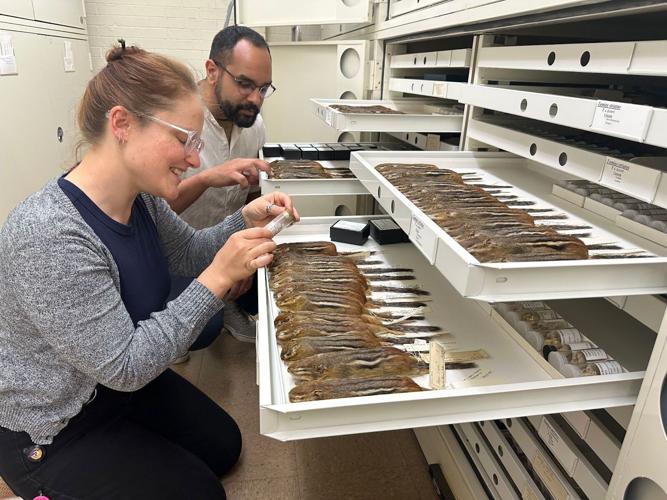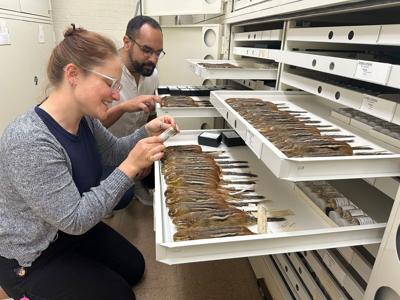In the bustling city of Chicago, chipmunks and other urban wildlife are experiencing evolutionary changes due to the demands of city life, according to a recent study by the Field Museum. Over the past century, chipmunks have developed larger skulls and shorter rows of teeth, a shift that reveals the profound impact of urban environments on wildlife, the announcement states.
The study co-authored by Anderson Feijó, assistant curator of mammals at the Field Museum, alongside Stephanie Smith drew comparisons from mammal specimens collected over decades. Researchers found distinct changes in the physical structures of chipmunks' skulls. These changes are believed to be adaptations for survival in urban settings, where different food sources and living conditions prevail.
Read More on Chicago Star
- Paws on deck! Canine Cruise returns aboard First Lady for a doggone good time
- Pig tales & pony plots: Lincoln Park Zoo lets kids read to the animals this July
- Whale, that’s a first! Shedd Aquarium makes waves with historic beluga surgery
- “Jurassic World Rebirth” falls flat, despite excitement from lead actress Scarlett Johansson

Skull and skin from a vole, collected in 1898 in Chicago | Photo by Field Museum
Researchers, using satellite imagery dating back to 1940, correlated these skull modifications with historical records on urbanization and temperature changes. "We tried very hard to come up with a way to quantify the spread of urbanization," said Feijó in the announcement, emphasizing that these findings underscore the harsh realities of urban expansion.
Alongside chipmunks, eastern meadow voles which the press release says are closely related to hamsters also experienced evolutionary adaptations. The study noted these rodents exhibited smaller bony structures housing their inner ears, attributing this to navigational adaptations in burrow-rich environments. The research indicates a similarity in how different species adapt differently to urban stresses.
The greater concern with evolutionary changes
While these adaptations may suggest resilience, the study emphasizes a broader concern. The evolving traits of chipmunks and voles are reminders of the extensive influence humans exert over natural habitats, the announcement stresses. It further noted that these changes serve as a warning of our capability to make the world increasingly challenging for wildlife to thrive in.
This research is said to be a call-to-action, urging communities to reconsider the environmental impact of urban development. The notable changes in the biology of Chicago's chipmunks may harbor broader implications for wildlife in urban areas globally.










(0) comments
Welcome to the discussion.
Log In
Keep it Clean. Please avoid obscene, vulgar, lewd, racist or sexually-oriented language.
PLEASE TURN OFF YOUR CAPS LOCK.
Don't Threaten. Threats of harming another person will not be tolerated.
Be Truthful. Don't knowingly lie about anyone or anything.
Be Nice. No racism, sexism or any sort of -ism that is degrading to another person.
Be Proactive. Use the 'Report' link on each comment to let us know of abusive posts.
Share with Us. We'd love to hear eyewitness accounts, the history behind an article.